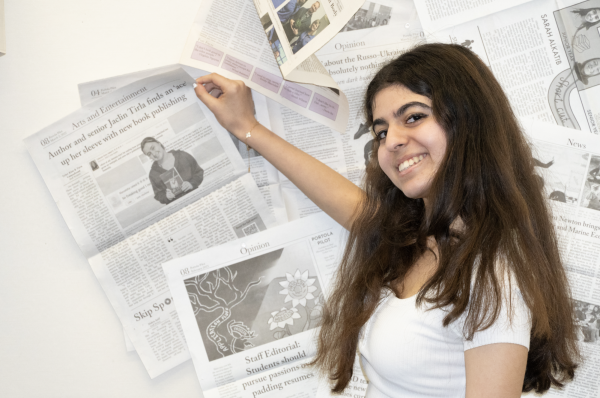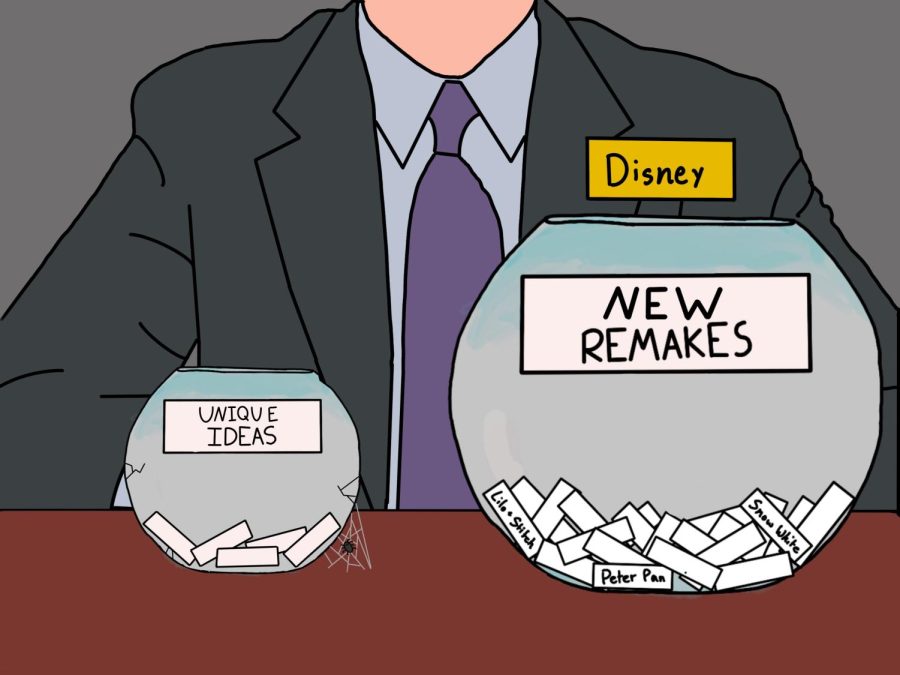Disney’s Penchant for Remakes Loses the Magic of Traditional Animation
Disney officially announced the release of a live action remake of the beloved animated film “Moana” (2016) on April 3. Other remakes currently slated for release are “The Little Mermaid,” “Snow White” and “Lilo & Stitch.”
In the past decade, the Walt Disney Company has produced 15 live action remakes of its beloved animated films, such as “Sleeping Beauty” and “Peter Pan,” according to the Disney website. With another 14 remakes in either the planning or production stages, the remakes can vary between complete reimaginings of the source material, such as the 2021 film “Cruella,” to near-exact reproductions of the original film, like the 2019 film “The Lion King.”
However, these remakes have done little to evoke Disney’s trademark sense of wonder with new movies largely failing to live up to the legacy of their animated fare. Viewers should stop supporting these films at the box office and on Disney+, as they largely dictate Disney’s adherence to this formula.
The unprecedented success at the box office of some of these films — such as “Alice In Wonderland,” “Beauty and the Beast,” “Aladdin” and “The Lion King” all surpassing the billion-dollar mark internationally — is a key motivator behind Disney’s decision to continue this endeavor, according to ScreenRant. The remakes essentially serve as a safe way for Disney to earn a guaranteed profit, according to The Verge.
However, for a film to be truly magical, as the enchanting fairy tales of Disney’s Golden Age in the 1950s and the lively musicals of the Disney Renaissance in the 1990s, the company should attempt to prioritize their artistic integrity on the same level as whether a film will be financially lucrative. Disney’s current remakes can be likened to an uninspired cash grab, rather than the pioneers their animated counterparts once were.
By promoting and embracing original stories, fans can encourage Disney to continue exploring diverse narratives and imaginative worlds that break away from the safety of remakes. Supporting original characters can also send a message that audiences want to see new and exciting content that expands beyond nostalgia and brings new to the table.
Some people may argue in favor of Disney’s remakes, as they can correct past errors in their back catalog, such as the 2019 reinterpretation of “Aladdin,” which cast Middle Eastern, North African and South Asian actors, a significant improvement from the all-white cast in the original film.
Cultural diversity in film can be achieved not only through remakes but also through new films that explore underrepresented cultures, according to Brigham Young University. Disney’s “Encanto” (2021) is an example of an original release that delves into Colombian culture and traditions, which are not often portrayed in the media.
Disney can benefit greatly from creating new worlds and stories that expand their already diverse character list and open up new sources of revenue through unique, lovable characters. By sticking to remakes, Disney may miss out on the opportunity to introduce audiences to fresh, imaginative characters and worlds that could become just as beloved as their classic films.
Your donation will support the student journalists of Portola High School. Your contribution will allow us to purchase equipment and cover our annual website hosting costs.

Arnav Chandan is the Sports Editor and Co-Business Manager for his second and final year on the Portola Pilot. Outside of spending hours upon hours in...

Tara Vatandoust is an Editor-in-Chief for her third, and sadly, final year on the Portola Pilot. This year, she is looking forward to (finally!) being...




